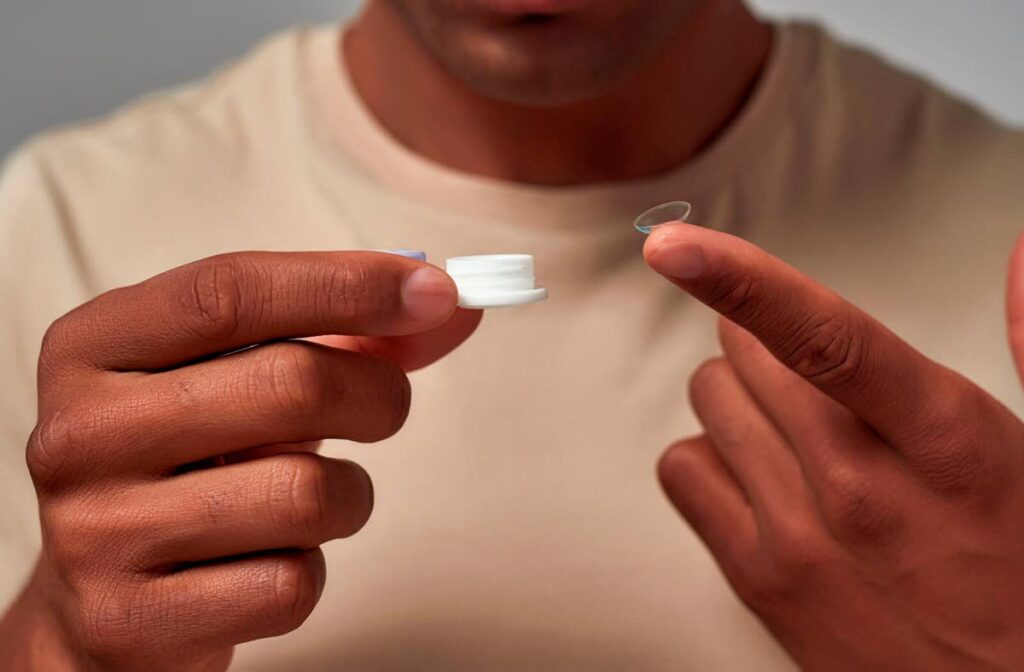Caring for your eyes during Carnival

BAVINA SOOKDEO
Our eyes play a profound role in our appreciation of the world’s beauty. However, the significance of good vision is sometimes taken for granted. Living with impaired vision or complete darkness can acutely impact individuals, their families, and society at large.
Amidst the vibrant festivities of Carnival, it’s crucial not to overlook the importance of eye care. Dr Ronnie Bhola, an eye surgeon at the Trinidad Eye Hospital, shared valuable insights on maintaining eye health during this high-energy celebration.

“Whether you find yourself on the beach or dancing in the streets for Carnival weekend,” Bhola remarked, “sunlight and bright glare can detract from the enjoyment. Thankfully, this issue can be addressed with the use of polarised sunglasses or lenses.”
Explaining the science behind polarised sunglasses, Bhola likened them to window shades or blinds that filter sunlight and “only allow a certain amount of light to pass through. They block horizontal light rays which are usually emitted from smooth surfaces including cars and water surfaces.
“This means that only light rays that approach your eyes vertically can fit through those openings.
“The resulting image with polarised lenses is a bit darker than usual, but objects look crisper and clearer, and details are easier to see.”
For those who wear glasses and plan to take part in Carnival festivities, Bhola suggested considering contact lenses.
“Contact lenses offer convenience, are hassle-free, and eliminate the risk of glasses falling, breaking, or getting lost.”
While contact lenses come in various modalities, Bhola recommended daily disposables for Carnival. These lenses are discarded after one use, eliminating the need for cleaning or storage. Similar to glasses, contact lenses now come with transitions, UV protection, and blue light protection. Unlike glasses, contact lenses offer a short-term commitment, and users can request trial lenses from their opticians.
Even without sunglasses, our eyes naturally defend themselves from harm. Bhola explained, “Your eyelashes and tears work together to prevent small particles and debris from getting stuck in the eyes, and lashes usually prevent debris and other small particles from entering the eye while tears rinse out and drain the particles that do get in the eye.”
Occasionally, a solid object or projectile can adhere to the eye or embed itself below the surface of the eye. If this happens to you during the Carnival season you can wash your eyes with saline or purchase an eye wash at the pharmacy. You can also consider using artificial tears for dry or irritable eyes.”
Highlighting the importance of eye-care safety, Bhola outlined three crucial rules: wearing sunglasses, removing all eye makeup before bedtime, and avoiding touching the eyes with dirty hands.
Asked why UV protection is important, Bhola explained, “Ultraviolet (UV) radiation can have harmful effects on the eyes and even cause vision loss. UV radiation, which is released from the sun, can cause damage to the eye after prolonged exposure. Some of the damage to the eyes that can occur from UV radiation include corneal damage, cataracts and macular degeneration.”
He pointed out that certain factors increase a person’s risk of eye damage from UV rays. These include:
* Their physical location, as UV rays are higher in certain locations such as beaches, higher altitudes and countries nearer the equator.
* Certain age groups are also more susceptible to UV radiation. Children for one, receive three times as much sun exposure as adults, and their eyes cannot filter out UV rays as easily. Also, older people’s eyes are more prone to visual disease.
* Lighter-coloured eyes, and especially blue eyes filter out less UV radiation than brown eyes do.
The eye health and safety organisation Prevent Blindness recommends wearing brimmed hats and UV-blocking sunglasses to provide the best protection against UV rays. These sunglasses should filter out 99-100 per cent of UV rays.



Comments
"Caring for your eyes during Carnival"